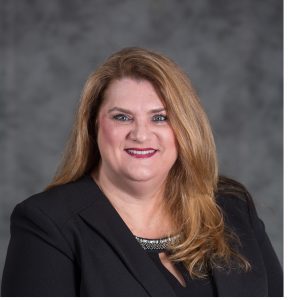By: Felipe Rivas

2 min read June 2020 — Many of the nation’s largest capital operators are increasingly moving headquarters and operations to South Florida to take advantage of the business and tax advantages available in the Sunshine State. As a result, the region is starting to transform its reputation as a playground to be recognized as an environment for serious business, Mary Beth Tarter, the regional head of tax advisory and accounting services firm Frankel, Loughran, Starr & Vallone, told Invest: Palm Beach.
What main services does the firm provide in the Florida market?
We are a tax advisory and accounting firm. Our clients are primarily in the financial services industry, such as hedge funds, venture capital, private equity and distressed debt. We also do a lot of commercial real estate.
I work on the individual side of the practice, so I work with fund principals and fund managers, helping with compliance and advisory. We look at their estate planning, trust, gifts, private foundations, all those tools that the high-net-worth group uses.
We’ve been here for three years, and we expect to continue growing, to continue expanding our staff within the next six to eight months.
What are the particular opportunities that South Florida offers for the kind of clients your firm specializes in?
Our firm has always had connectivity to South Florida, because the ultra-high-net-worth community will have vacation homes here. But it really started in 2017, with the Tax Cuts and Jobs Act, which was the most sweeping tax law change we’ve had since 1986. Hedge funds and private equity funds could stand to lose millions because of the deductions that were not allowed at the individual level, even at the partnership level. It got to the point where some of them looked at it very analytically, and recognized that moving to Florida could save them $1 million a year because of the tax situation, and so they moved.
Over the course of 2018 and 2019, I think our firm handled more residency planning for our clients than we did in the previous 24 years. Many of them did it from an analytical standpoint, while for others, it was just the impetus that they needed: they decided that now was the time.
The wonderful part of already having connectivity is that it was seamless for our clients. Now we are here, boots on the ground, and that’s very important for us. They expect a certain level of service and we did not want any disruption to that.
People are also starting to recognize that Florida is not just a playground. This is a very serious business area as well. The median age of people moving down here is younger, and that speaks tremendously to the local commerce, the lifestyles that people want for their families, for their businesses. There are so many companies relocating or expanding down here, and of course, taking advantage of the fact that it is, in a lot of cases, tax driven.
Has that recognition created a new environment for investors in Florida?
It has. New York is rebalancing its budget because Carl Icahn is moving to Miami. New Jersey is rebalancing its budget because David Tepper left. They are coming to Miami to be part of the hedge fund community there, which is amazing.
We’ve actually just created another division, with a gentleman who has been in the hedge fund community for the last 25 years. He is Latin by birth and is looking to expand and help those startup funds, even those that are coming from Latin America as well. A big part of our clientele also has international connectivity.
How do you see the reactivation of the commercial real estate industry after COVID-19 is left in the rear-view mirror?
I think the real estate industry is going to be a little stalled until people can get outside again. Then they are going to start taking advantage of the opportunities they have been denied over the last couple of months. I truly believe that for anybody who has the available cash, for the most part, our clients among them, we will see an increase of activity in both commercial and residential real estate because you weren’t allowed to do it.
All companies, not just those in commercial real estate, need to be really thoughtful about what they do in the future, especially those people who have taken the stimulus loans, such as the PPP loans. You have certain requirements that you have to certify in order to go through the application process, but I also believe there’s going to be heavy oversight to limit the potential of fraud.
This has forced a lot of people to pivot their business model, and I think that some of the things that people have come up with are amazing, and a true credit to the ingenuity of the entrepreneur. I see nothing but positives after this is done. I really don’t see any negatives.
To learn more about our interviewee, visit: http://www.flsv.com/
